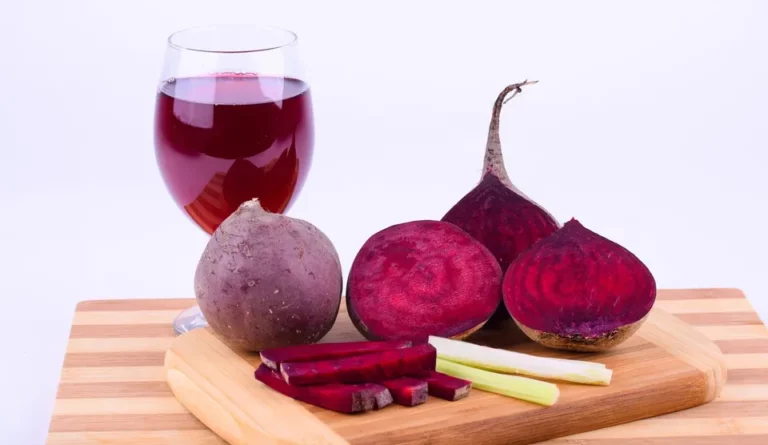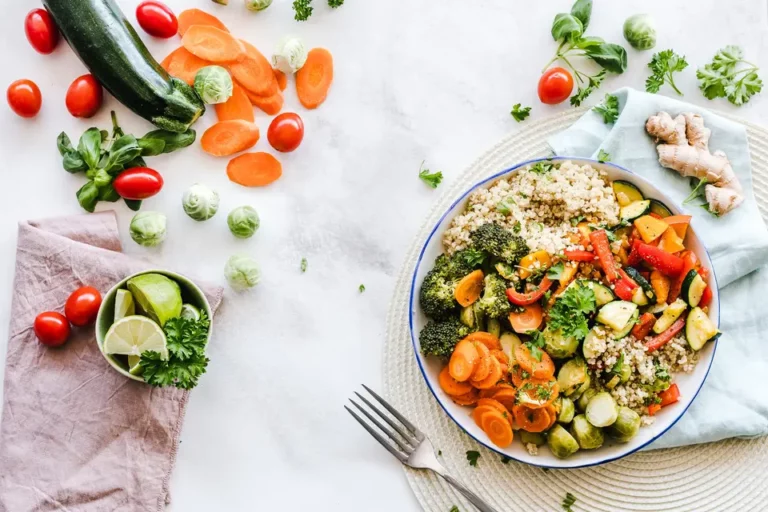The Surprising Benefits of Carrots and how they can Transform Your Health
The carrot is a root vegetable that, apart from being delicious, is also full of nutrients that can help improve our health in many ways. They are rich in antioxidants that help protect cells from damage and prevent diseases such as cancer and heart disease, among others.
Carrots are also an excellent source of nutrients like potassium, vitamin A, and beta-carotene, which can promote good health. In this article, we will explore the amazing benefits of carrots and how they can transform our health.
Este artículo también está disponible en Español
Nutritional Data, Vitamins, and Minerals in Carrots
The carrot is a vegetable that has a very low energy value since a medium carrot of approximately 60 gr barely provides about 25 calories, but with an extraordinary nutritional content that provides excellent health benefits.
It is rich in several nutrients such as vitamin A and carotenoids, which give it its characteristic orange color and which have antioxidant, anti-inflammatory, and anticancer properties. It also contains vitamins C, E, K, B3 (niacin), and B9 (folic acid), which contribute to the proper functioning of the immune, nervous, and cardiovascular systems. In addition, it provides minerals such as potassium, phosphorus, magnesium, iodine, and calcium, which regulate water balance, blood pressure, muscle activity, and bone health.
According to the nutritional table of foods, 100 grams of raw carrots provide 41 calories, 9.6 grams of carbohydrates, 2.8 grams of fiber, 0.24 grams of fat, and 0 grams of protein. In addition, they cover 110% of the vitamin A needed per day, 13% of vitamin C, and 10% of folic acid. They also provide significant amounts of the following minerals: potassium (320 mg, 7% of the daily recommendation), phosphorus (35 mg, 5%), magnesium (12 mg, 3%), iodine (6.5 mcg, 4%), calcium (33 mg, 3%), and iron (0.3 mg, 2%).
In addition to these nutrients, minerals, and vitamins, carrots also contain other elements such as falcarinol and terpenes. Falcarinol is a natural compound that has antifungal effects and may inhibit the growth of cancer cells. Terpenes are aromatic substances that have antibacterial, antiviral, and anti-inflammatory properties.
The Health Benefits of Carrots
As we can see, carrots are a very nutritious and beneficial vegetable for health. It is a powerful antioxidant that contains beta-carotene, fiber, and vitamins (A, B, B3, C, D, E, and K). In addition, it is a source of minerals such as potassium, phosphorus, magnesium, iodine, and calcium.
Beta-carotene is converted to vitamin A in the human body and is important for eye health. It has also been shown that eating carrots can reduce the risk of cardiovascular disease. But the carrot has many more benefits for our health that will surprise us. Let’s see them in detail:
Carrots: a Natural Ally for the Health of Your Eyes
The carrot is an extraordinary ally to take care of our visual health. It is an excellent source of carotenoids, potassium, fiber, and antioxidants, which help protect the eyes from various diseases and improve vision.
One of the main components of carrots is beta-carotene, which is the precursor to vitamin A. Vitamin A is essential for the health of the retina, the part of the eye that contains light-sensitive cells. Vitamin A helps prevent night blindness, which is difficulty seeing in low light conditions. It also helps prevent cataracts, and macular degeneration, which is the deterioration of the central area of the retina.
Another important component of carrots is lutein, a carotenoid found in the macula, the most visually acuity area of the retina. Lutein protects the eyes from damage caused by free radicals and ultraviolet rays. Lutein also improves contrast and reduces glare.
In addition to these components, carrots also contain zeaxanthin, another carotenoid that has a protective effect on the eyes. Zeaxanthin is also found in the macula and helps filter harmful blue light. Zeaxanthin also prevents oxidative stress and ocular inflammation.
Carrots also improve the hydration and lubrication of the eyes, and prevent infections and inflammation of the eyelids and conjunctive membranes.
Fiber, Water, and Carotenoids: the Secrets of Carrots to Improve Digestion
Protecting the health of our digestive system is another of the great benefits of carrots. It is an excellent source of fiber, water, carotenoids, potassium, and antioxidants, which help improve digestion, prevent constipation, regulates intestinal flora, and protect the stomach and intestine from various diseases.
One of the main components of the carrot is fiber, which is divided into soluble and insoluble. Soluble fiber forms a kind of gel in the stomach that increases digestion time and prolongs the feeling of satiety. Insoluble fiber bulks up your stool and stimulates natural bowel movements. Both fibers help prevent constipation and eliminate toxins from the body.
Another important component of the carrot is water, which represents more than 80% of its weight. Water is essential to maintain hydration and lubrication of the digestive system, facilitating intestinal transit and preventing dry stools. Water also helps dissolve nutrients and transport them throughout the body.
On the other hand, the carotenoids contained in carrots, such as beta-carotene, lutein, and zeaxanthin, precursors of vitamin A, have a protective effect on the mucosa of the stomach and intestine. Vitamin A also helps prevent gastric ulcers and gastritis, which are inflammations of the stomach wall.
Carrots also provide potassium, a mineral that regulates the balance of fluids and electrolytes in the body; antioxidants, which fight free radicals and prevent cell damage; and prebiotics, which are substances that feed the beneficial bacteria in the intestine, improving the intestinal flora and strengthening the immune system.
How Carrots Protects your Heart and Improves your Blood Circulation
The carotenoids, potassium, fibers, and antioxidants present in carrots help protect the heart and blood vessels from various diseases and improve circulation, making them an excellent ally for our cardiovascular health.
Beta-carotene converted to vitamin A is essential for the health of the body’s cells and tissues and has an antioxidant effect that prevents cell damage caused by free radicals. Beta-carotene also helps lower blood cholesterol levels, which lowers the risk of atherosclerosis, heart attack, and stroke.
Another important component of carrots is potassium, which is a mineral that regulates blood pressure and fluid balance in the body. Potassium also acts as a vasodilator, relaxing the tension in the arteries and facilitating blood flow. Potassium also prevents fluid retention and blood clots.
Carrots also contain soluble and insoluble fibers, which in addition to improving digestion and intestinal health, help control blood sugar and prolong the feeling of satiety, which promotes weight control. Being overweight is a risk factor for cardiovascular disease.
How Carrots Strengthen Your Immune System and Prevent Diseases
The vitamins A, C, E, and K, carotenoids, potassium, and antioxidants contained in carrots help protect immune cells from free radical damage and improve response against pathogenic organisms such as viruses, bacteria, and fungi.
One of the main components of carrots is beta-carotene, which, as we have mentioned, is a precursor of vitamin A, which is essential for the health of mucous membranes and skin, which are the body’s first defense barriers. Vitamin A also helps regulate the production and function of T-lymphocytes, which are a type of infection-fighting white blood cell.
Carrots also have a significant content of vitamin C, which is a powerful antioxidant that neutralizes free radicals that are generated during oxidative stress. Vitamin C also stimulates the production and activity of phagocytes, which are cells that are responsible for eliminating invading microorganisms.
In addition to these components, carrots also contain vitamins E and K, which have anti-inflammatory and anticoagulant effects. Vitamin E protects cell membranes from free radicals and modulates the immune response. Vitamin K participates in blood clotting and prevents bleeding.
The immune system is also strengthened with the improvement of the intestinal flora as a result of the effect of the prebiotics contained in the carrot.
The Incredible Benefits of Carrots for Mental Health
Vitamins A, C, E, and K, carotenoids, potassium, phosphorus, and antioxidants contained in carrots help improve brain function, memory, and mood and prevent neurodegenerative diseases. Vitamin A is essential for the health of neurons and the connections between them, known as synapses. Vitamin A also helps prevent cognitive decline and diseases like Alzheimer’s and Parkinson’s.
Vitamin C is a powerful antioxidant that protects brain cells from oxidative stress caused by free radicals. It also stimulates the production of neurotransmitters such as dopamine and serotonin, which regulate mood, motivation, and pleasure. In addition, vitamin C favors the synthesis of choline, which is a necessary nutrient for the formation of acetylcholine, which improves memory and learning.
In addition to these components, carrots also contain vitamins E and K, which have anti-inflammatory and neuroprotective effects. Vitamin E prevents cell damage and modulates the expression of genes related to brain aging. Vitamin K participates in the regulation of intracellular calcium and prevents vascular calcification, which can affect cerebral blood flow.
Benefits of Carrots for Your Skin
Carrot components help improve the appearance, hydration, elasticity, and protection of these parts of the body. Vitamin A is essential for the health of cells and tissues in the body, and its antioxidant effect prevents cell damage caused by free radicals, helping to prevent premature skin aging, wrinkles, blemishes, and cancer. skin.
Another component of carrots that is important for the skin is vitamin C, as it stimulates the production of collagen, which is a protein that maintains the integrity, firmness, and elasticity of the skin. In addition, vitamin C promotes wound healing and skin regeneration.
In addition, carrots promote the natural tanning of the skin, which reduces the risk of sunburn. This is because carotenoids stimulate skin pigmentation and act as a natural photoprotector against the sun’s UV rays.
Carrots take care of your Kidneys and your Renal Health
Carrots are an excellent source of water, potassium, and fiber, which help eliminate excess fluid and sodium from the body. This favors kidney function and prevents fluid retention and swelling.
In addition, carrots also contain antioxidants, such as beta-carotene and vitamin C, which protect cells from free radical damage and prevent urinary tract infections. These antioxidants also have an anti-inflammatory and detoxifying effect, helping to cleanse the body of waste substances that accumulate in the body.
Carrot can also help dissolve kidney stones, as it contains a compound called falcarinol, which has an anti-stone effect. Falcarinol inhibits the formation of calcium oxalate crystals in the kidneys, which are responsible for most cases of kidney stones.
Falcarinol: a Natural Compound with Anticancer, Antifungal, and Antimicrobial Properties
Falcarinol is a naturally occurring compound found in carrots and other plants in the Apiaceae family, such as celery, turnips, and parsley. This is a fatty alcohol that acts as a natural pesticide protecting plants from fungal diseases such as licorice rot which causes black spots on the roots during storage.
Falcarinol also has beneficial properties for human health, as it has been shown to have anticancer, anti-inflammatory, antithrombotic, neuritogenic, and serotonergic effects. Several studies in laboratory animals have shown that falcarinol can reduce the risk of developing colorectal cancer and can also inhibit a protein that is involved in resistance to anticancer drugs.
In addition, falcarinol has antibacterial, antimycobacterial, and antifungal activity against various pathogenic microorganisms, including Staphylococcus aureus, Mycobacterium tuberculosis, and Candida albicans.
In carrots, falcarinol is concentrated in the skin, so to obtain the maximum benefits of this compound it is recommended not to peel the carrot to consume it but to disinfect it well with a solution of vinegar and water.
It is generally believed that more research is needed to determine the amount and type of falcarinol needed to prevent cancer in humans and whether eating raw or cooked carrots has the same beneficial effect. The exact mechanism by which falcarinol exerts its biological effects and whether it interacts with other dietary components or medications is also unknown.
The Best Way to Consume Carrots for Optimal Health Benefits
Carrots are a very versatile food that can be consumed in various ways: raw, cooked, steamed, boiled, roasted, pureed, as an ingredient in soups and stews, juiced, or in a smoothie. The best is to consume it with the skin on or superficially peeled to make the most of its nutrients.
Boiling vegetables can reduce or eliminate some of the vitamin content. Raw or steamed carrots provide the most nutritional value. It is also recommended to combine it with a healthy fat source such as olive oil or nuts to improve the absorption of carotenoids.
Raw carrots have a lower glycemic index and higher vitamin C. Cooking carrots breaks down the thick cell walls of the vegetable, making it easier for the antioxidants to be absorbed. However, boiling vegetables can reduce or eliminate some of the vitamin content.
To maximize the nutritional benefits of carrots, boil them whole before slicing them. Cooking them this way prevents valuable nutrients from escaping into the cooking water. Once cooked, they will be easier to cut.
It is important to sanitize carrots before eating them. You can do this by soaking them in a vinegar and water solution for 15-20 minutes. This will help remove any dirt or bacteria that may be present on its surface.
Conclusion
Carrots are versatile vegetables that can be enjoyed in a variety of ways and offer many health benefits. They are a great source of important vitamins and minerals, such as vitamin A, vitamin C, and potassium.
Researchers found that the compound falcarinol in carrots has similarly promising benefits and may even help reduce the risk of colon cancer. Falcarinol is a natural pesticide produced by the plant that protects carrot roots from diseases and fungi, and when consumed regularly, becomes a natural defense mechanism against cancer.
Carrots also produce an essential oil that is rich in volatile terpenes and plays an important role in carrot aroma and flavor. Carrot cultivation has largely focused on improving alpha- and beta-carotene content as vitamin A precursors and improving root morphology and resistance to diseases or pests.
Follow these tips and enjoy the extraordinary benefits that carrots provide you.







Fantastic post. We have carrots on a regular basis in our house. We enjoy them in a variety of ways. Raw and cooked. We don’t boil them tough. You mention that steaming them is one of the best ways to cook them the retain the most nutrients. I was wondering how over roasting them effects carrots? We usually roast them with a coating of olive oil. I would be interested to hear what you think of that cooking method.
Thank you for your comment and for sharing your experience with carrots. I’m happy to hear that you enjoy them in a variety of ways. Carrots are versatile and delicious vegetables that can be eaten raw or cooked. You are right that steaming them is one of the best ways to cook them to retain the most nutrients. As for roasting them, it depends on how long and at what temperature you roast them. Roasting can enhance the flavor and texture of carrots, but it can also cause some nutrient loss due to high heat and exposure to air. To minimize this, you can roast them at a lower temperature (around 200°C or 400°F) for a shorter time (no more than 20 minutes) and coat them with a thin layer of olive oil.
Thank you for reading my article. Have a great day!
Growing up I was always told to eat my carrots because it is good for my eyesight. I was never thought so much about carrots. Knowing more benefits that comes from carrots makes me actually want to eat it more. Now people can stop telling kids to eat carrots only for their eyesight. This article has great insights about carrots that can also be used by health professionals especially when taking about or giving a diet plan. Very detailed and informative. I will surely remember this when I eat carrots again.
Thank you for such a great and useful article.
Thank you for your kind words and feedback. I’m glad you found the article useful and informative. Carrots are indeed a wonderful vegetable with many advantages for our well-being. I hope you enjoy eating them more often and share this article with your friends and family. I appreciate your support and interest in Body Back to Basics.
Let me know if you have any questions.